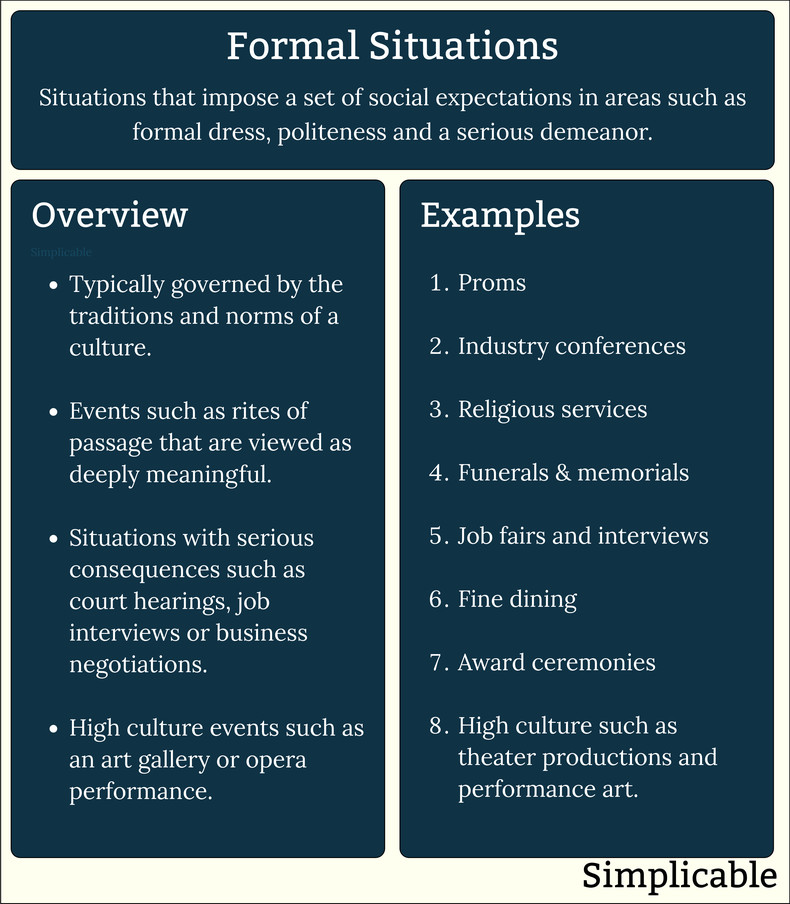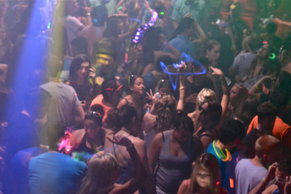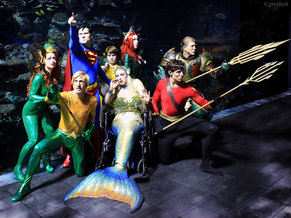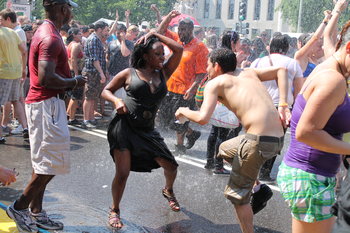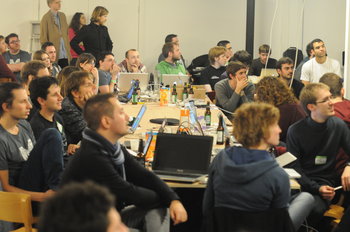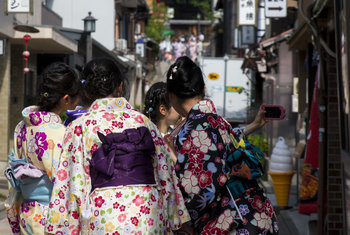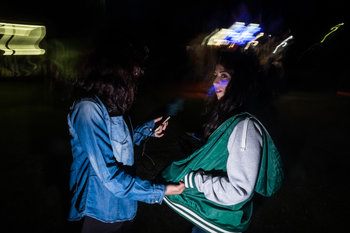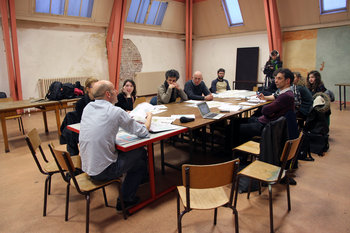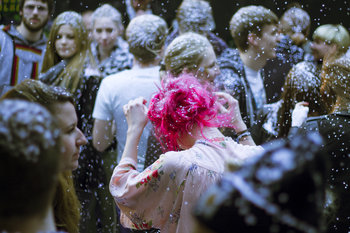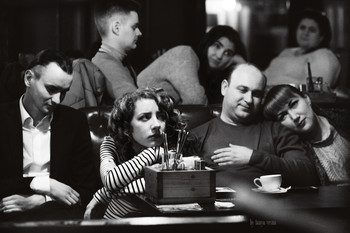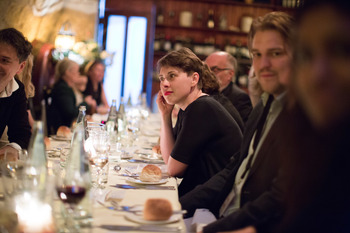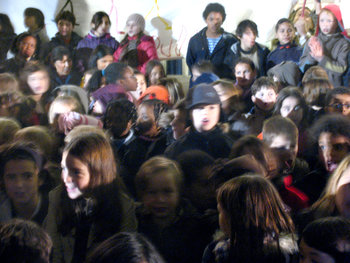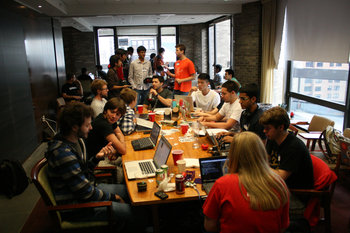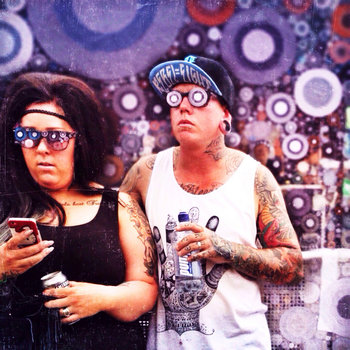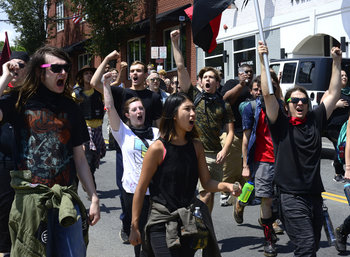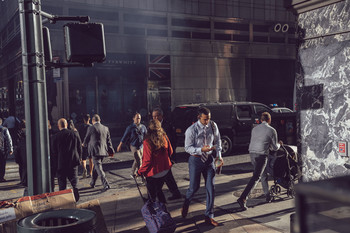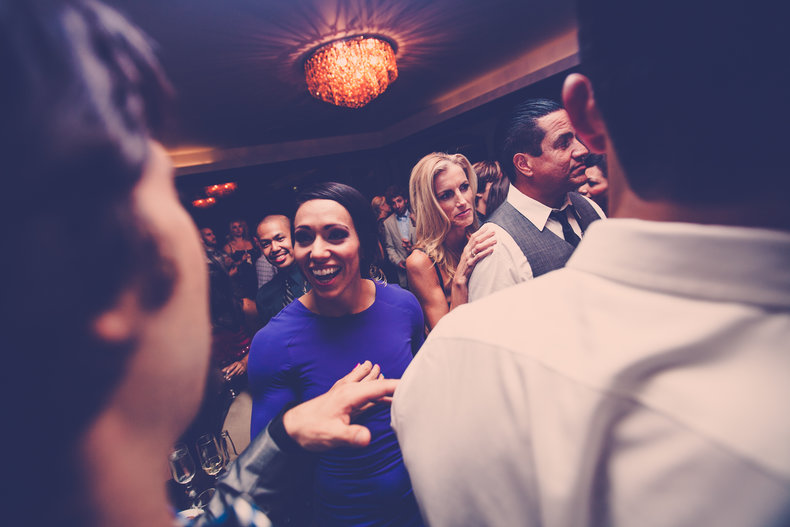
Academic Conferences | Academic Lectures |
Award Ceremonies | Board Meetings |
Business Meetings | Ceremonies |
Classical Music Concerts | Client Presentations |
Court Hearings | Debutante Balls |
Diplomatic Meetings | Fashion Shows |
Formal Dinners | Formal Receptions |
Formal Theater Productions | Fundraising Events |
Gala Dinners | Government Sessions & Hearings |
Graduation Ceremonies | Industry Conferences |
Job Fairs | Job Interviews |
Memorials & Funerals | Negotiations |
Networking Luncheons | Opera |
Press Conferences | Product Launches |
Proms | Religious Services |
Rites of Passage | Rituals |
Seminars | Shareholder Meetings |
State Functions | Summits |
Symposiums | Team Meetings |
Thesis Defenses | Weddings |
Summary
Formal situations include high culture such as fine cuisine, meaningful and traditional events such as weddings and situations that have commercial or social consequences such as a job interview or court hearing. The following is a basic overview of formal situations with additional examples.